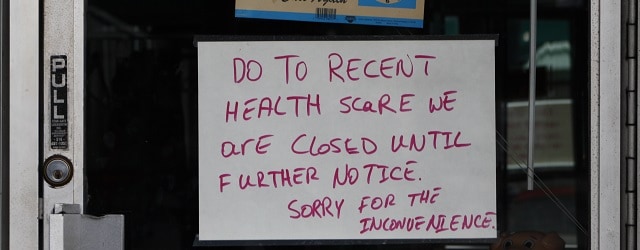Chaos and confusion as small businesses find it impossible to get relief from government despite relief bill.

The U.S. government’s $349 billion Paycheck Protection Program (PPP), intended as a lifeline for small businesses through the coronavirus crisis, got off to a rocky start on Friday (April 3). Citing unclear guidance, many banks were unprepared to accept applications from eligible businesses with fewer than 500 employees. Meanwhile, fintech firms were still waiting for the nonbank lender application that would allow them to participate.
As of Friday morning, only Bank of America (BoA) was accepting applications for the Small Business Administration (SBA) loans, and then only from previous BoA loan customers. JPMorgan Chase, which got started in the afternoon, required applicants to have a business checking account with the bank as of Feb. 15.
U.S. Sen. Marco Rubio, Chairman of the Senate Committee on Small Business and Entrepreneurship, acknowledged on Saturday (April 4) some problems with the program launch. “On Friday, there were reports of large banks declining applications unless the business owner had previously taken out a loan or a credit card from the lender. Business owners that have had 20-year relationships had their loan applications denied.”
The good news, said Rubio, was that “banks are already starting to change their policy on this and will start accepting new customers.”
On March 27, Karen Mills, former SBA Administrator under Obama, had warned that 20% of small businesses could fail because of the coronavirus pandemic. They have, on average, only 27 days of cash with which to pay salaries and rent. The PPP program offers small businesses loans of up to $10 million which can be forgiven if the businesses retain their employees for eight weeks.
Mills had concerns about the program’s logistics, though. “A lot depends on what happens between the banks and the fintechs [like PayPal and Square ] and the Treasury and the SBA in the next week,” she said, in an interview with Yahoo Finance. “When I read the bill, it was pretty clear that they were going to rely on the old piping system of the lender banks.”
The Treasury Department had planned for the participation of nonbank lenders in the program, and online lenders like Kabbage Inc. and Funding Circle had expressed interest in joining the emergency loan program. “But as of Friday, the government had not even released an application that would let financial technology companies apply to participate,” the New York Times reported.
Still, Wolters Kluwer announced Friday a fintech solution for banks and credit unions to participate in the PPP through its SaaS-based TSoftPlus™ software platform, and later in the day, Lendio, a small business loan marketplace, announced the launch of an online application to connect small business owners with the emergency loan program’s approved capital providers.
By 7:30 PM Friday, 17,503 loans valued at more than $5.4 billion were approved, according to Jovita Carranza, Administrator of the U.S. Small Business Administration (SBA).
“Fintechs, including PayPal and other online lenders, are ready to process PPP loans and can help with the demand for businesses that do not have existing bank relationships,” added Rubio on Saturday.
Fintechs may still have to wait some, though. “The nonbank lender application will be out soon,” Rubio promised.



